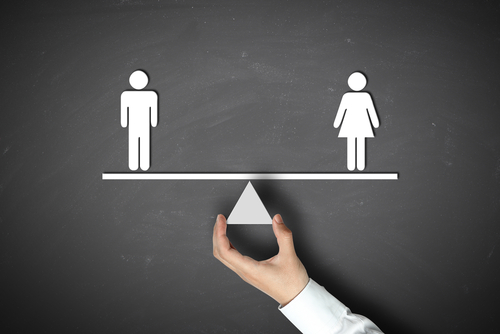G20 performance on gender equality
Compliance on gender equality by G20 members falls below average, but there are measures that can be taken to improve their performance in this area – from dedicating a larger proportion of the communiqué to gender equality to setting specific targets with multi-year timelines
Women will be among the hardest hit by the COVID-19 pandemic, which threatens to reverse decades of progress in female labour force participation. At their Riyadh Summit in November 2020 amid unprecedented economic uncertainty, G20 leaders must act in concerted, committed ways to safeguard and advance this progress.
Conclusions
G20 leaders first addressed gender equality at their London Summit in April 2009, in 155 words or 3% of their communiqué. At Seoul in November 2010 they issued 177 words (1%), dropping to a low at Cannes in 2011 of 52 words (0.4%), then rising at Los Cabos in 2012 to 231 words (2%). This rose at St Petersburg in 2013 to 1,015 words (4%), but dropped at Brisbane in 2014 to 305 words (3%). Then came a sustained rise to 1,235 words (14%) at Antalya in 2015, 1,199 words (8%) at Hangzhou in 2016, and a spike to peak at 4,836 words (14%) at Hamburg in 2017. At Buenos Aires in 2018, the number plunged to 676 words (8%), but rose significantly at Osaka in 2019 to 1,513 or 23% – the highest portion ever. At the Extraordinary G20 Leaders’ Summit on 26 May 2020, the communiqué did not refer to gender.
Commitments
This recent rise in G20 summit conclusions on gender equality did not, however, extend to the number of commitments the leaders made.
From 2008 to 2019, G20 leaders made 55 commitments on gender equality. The first came at London in 2009, taking 1% of the commitments. The next two (2%) came at Los Cabos in 2012 and an additional four (2%) at Brisbane in 2014. Antalya in 2015 produced four (2%) gender-related commitments. Hangzhou in 2016 had eight (4%). There was a strong surge at the Hamburg Summit hosted by German chancellor Angela Merkel in 2017, with a record 30 core gender equality commitments and 14 related ones (for a total average of 8%). Buenos Aires in 2018 had only seven (7%) core commitments. At Osaka in 2019, the number rose to 12, with an additional four related ones (total of 11%).
At the start, G20 commitments on gender focused on increasing female labour force participation and improving workplace conditions. There was a slight expansion in 2015 to include women entrepreneurs and women farmers, and later to digital skills development and education in science, technology, engineering and mathematics. In 2017 and 2018, the G20 committed to ending gender-based violence, a particularly important issue this year as the incidence of domestic violence directly related to COVID-19–induced quarantines has risen.
Compliance
The G20 Research Group has assessed 21 gender commitments for compliance. Combined, the 12 core and nine related commitments averaged compliance of only 59%. This is much lower than the G20’s all-subject average of 71%. The core gender equality commitments averaged a slightly higher 62% than the gender-related ones at 55%. The highest compliance came on commitments on reducing the labour force participation gap by 25% by 2025. The highest overall complier was Canada at 88%, followed by Australia and the United Kingdom at 77%. Eleven months after the 2019 Osaka Summit, the two assessed gender commitments averaged 62%.
Causes
Higher G20 compliance on gender equality of about 10% comes from summits where a higher percentage of the communiqué and its commitments is dedicated to gender and gender-related issues. Several catalysts embedded in the commitment text that provide direction for implementation have a positive effect on compliance. The 10 assessed commitments with at least one catalyst averaged 73% compliance, while the other 11 with none averaged only 57%. The two commitments with the highest compliance referred to a specific target, a multi-year timeline, a past summit, a remit mandate, and self-monitoring processes, and had a highly politically binding verb. Commitments expressing this high degree of binding averaged 82% compliance, while those with a lower degree averaged only 51%.
Corrections
To increase compliance, G20 leaders should dedicate a larger percentage of the communiqué to gender equality. They should make many commitments on the issue, and give them a high degree of binding to express their personal political will. They should set specific targets with multi-year timelines and commit to working with relevant institutions such as the Global Partnership for Financial Inclusion. They should promise to hold a G20 meeting for ministers responsible for gender equality, as holding G20 ministerial meetings on a specific subject raises compliance with leaders’ commitments with that subject.












